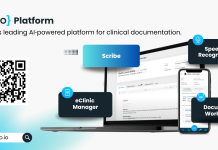Marc Hoogstad, Head of Product Management at Finworks, discusses how government can leverage data to drive strategic decision-making and improve processes to create value
Data science has become a transformative force in enhancing government operations and public service delivery. By harnessing the power of data, governments can make more informed decisions, optimise resources, and improve transparency and accountability.
This article explores how data science is revolutionising government efficiency and public service innovation, focusing on its role, key components, implementation strategies, challenges, and future trends.
The role of data science in government
Data science, which involves extracting meaningful insights from vast amounts of data through advanced analytical methods, enhances government decision-making processes by enabling evidence-based policymaking. Analysing historical data and current trends helps predict future scenarios, allowing governments to develop proactive strategies. Predictive analytics, for example, can aid in resource planning, such as anticipating staffing increases during peak service times or preparing for reoccurring natural disasters like flooding.
Improving public services is another vital role of data science. By analysing demographic and behavioural data, governments can offer personalised citizen services, leading to more targeted and efficient public service delivery. Additionally, data science facilitates efficient resource allocation, ensuring that resources are directed where they are most needed.
Data science also ensures transparency and accountability within government operations. Open data initiatives, where government data is made accessible to the public, promote transparency. Real-time monitoring and reporting of government activities using data analytics tools enhance accountability, enabling citizens to track government performance and hold officials responsible.
Key components of a world- class data science program
Data science capabilities are vastly improved through the use of the cloud. Advanced technology and infrastructure are crucial for managing and analysing data effectively. The key components of a data science program include:
- Onboarding and integration
- Flexibility
- Modelling
- Scalability
- Publishing
- Security and backups
- Use of confidential data
Robust data management systems ensure that data storage is secure and easily retrievable for onward consumption. Analytical tools and platforms, such as machine learning (ML) algorithms and visualisation software, facilitate in-depth data analysis and the extraction of actionable insights.
A skilled workforce is the backbone of any successful data science program. Governments that invest in recruiting and training data scientists with technical expertise are more successful in overcoming public sector data challenges. Continuous professional development is essential to keeping pace with the evolving field of data science.
Strong governance and ethical frameworks are imperative to ensure that data science practices are conducted responsibly. This includes implementing stringent data privacy and security policies to protect citizens’ information.
Ethical data use is also paramount, requiring clear guidelines to prevent misuse and ensure that data science initiatives align with the public good.
Strategies for building and implementing data science in government
Collaboration and partnerships are key strategies for building robust data science capabilities. Interagency collaboration allows for data and expertise sharing, leading to more comprehensive data analysis. Public-private partnerships can provide governments with access to cutting-edge technologies and industry expertise.
Investment in education and research is fundamental for developing a strong data science foundation. Government- funded data science programs can foster the next generation of data scientists. Collaborations with academic institutions can drive research that addresses specific public sector challenges and develops innovative solutions.
Fostering an innovation culture within government is also crucial. Encouraging experimentation and pilot projects can lead to breakthroughs in how data is utilised. Recognising and rewarding innovation can motivate government employees to think creatively and embrace new data-driven approaches.
Challenges and solutions in building government data science capabilities
Data silos and integration issues are significant challenges. Overcoming technical barriers to integrating disparate data sources is essential. Promoting inter-departmental data sharing can help create a holistic view of government operations, leading to more effective decision-making.
Budget constraints pose a significant challenge in developing government data science capabilities, as limited funding can restrict investment in essential technology. Prioritising data science initiatives often compete with other pressing government needs, making it difficult to allocate sufficient resources. To address this, governments can seek alternative funding sources and phased investment plans to build data science infrastructure over time.
Ethical and privacy concerns are of paramount importance in the use of data science. Balancing data use with privacy rights requires robust policies and practices. Establishing clear ethical guidelines ensures that data science is conducted responsibly, maintaining public trust.
The future of data science in government
Emerging technologies and trends such as artificial intelligence (AI) and the Internet of Things (IoT) will further enhance government data science capabilities. AI and ML can give deeper insights and more accurate predictions, while IoT can generate real-time data for immediate analysis and action.
The vision for a data-driven government includes fully integrated data systems that provide comprehensive, real-time insights across all sectors. Continuous improvement and adaptation will be essential to keep pace with technological advancements and changing public needs.
Data science in government conclusion
Building world-class data science capabilities is crucial for modern governments seeking to enhance their effectiveness and efficiency. By investing in advanced technology, strong governance, and innovative strategies, governments can leverage data science to drive success. Embracing data science is not just a technological upgrade but a strategic imperative that can transform governance and improve citizens’ lives.
Finworks helps governments establish world-class data science by providing advanced data management solutions that ensure secure, efficient, and scalable data storage, integration, and transformation. Finworks supports responsible and transparent data use, which is crucial for building public trust and driving innovation in public service delivery.

This work is licensed under Creative Commons Attribution-NonCommercial-NoDerivatives 4.0 International.











